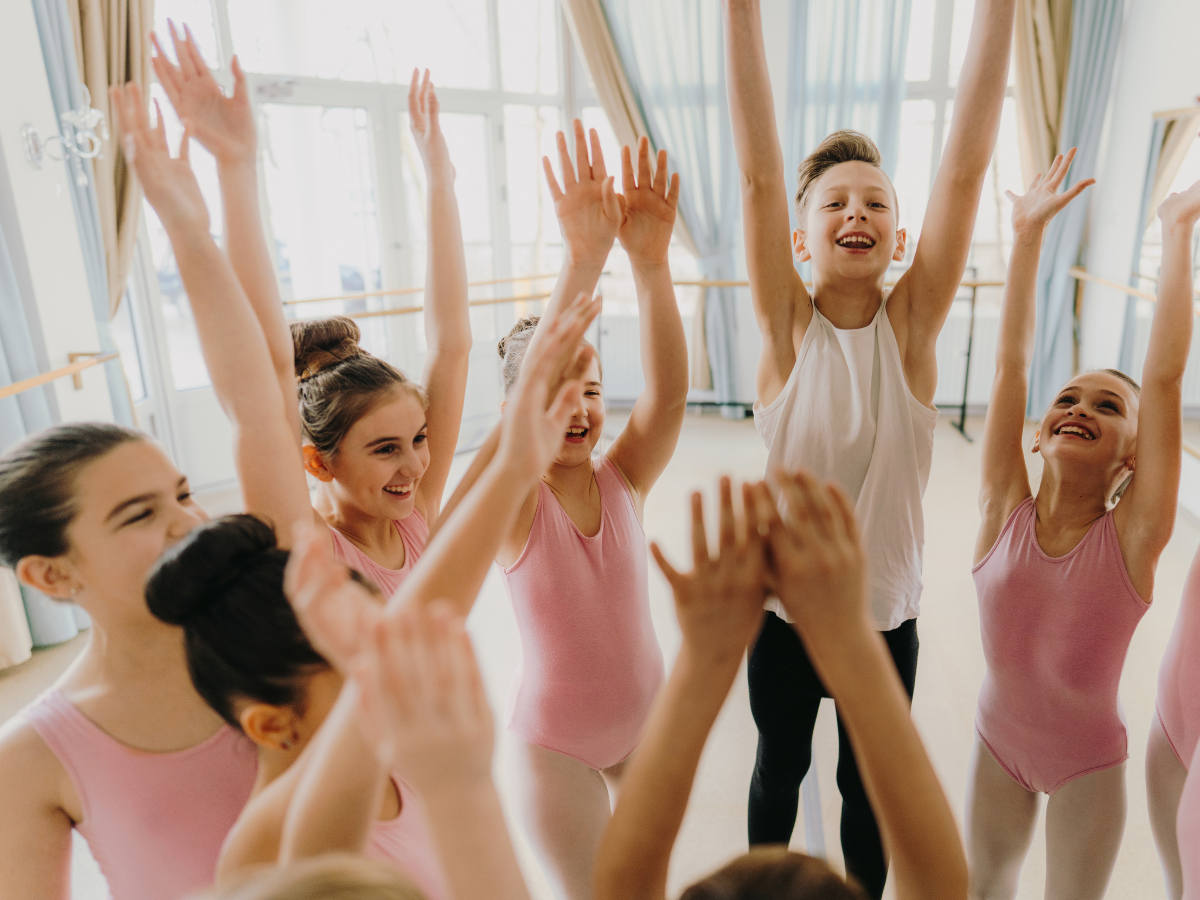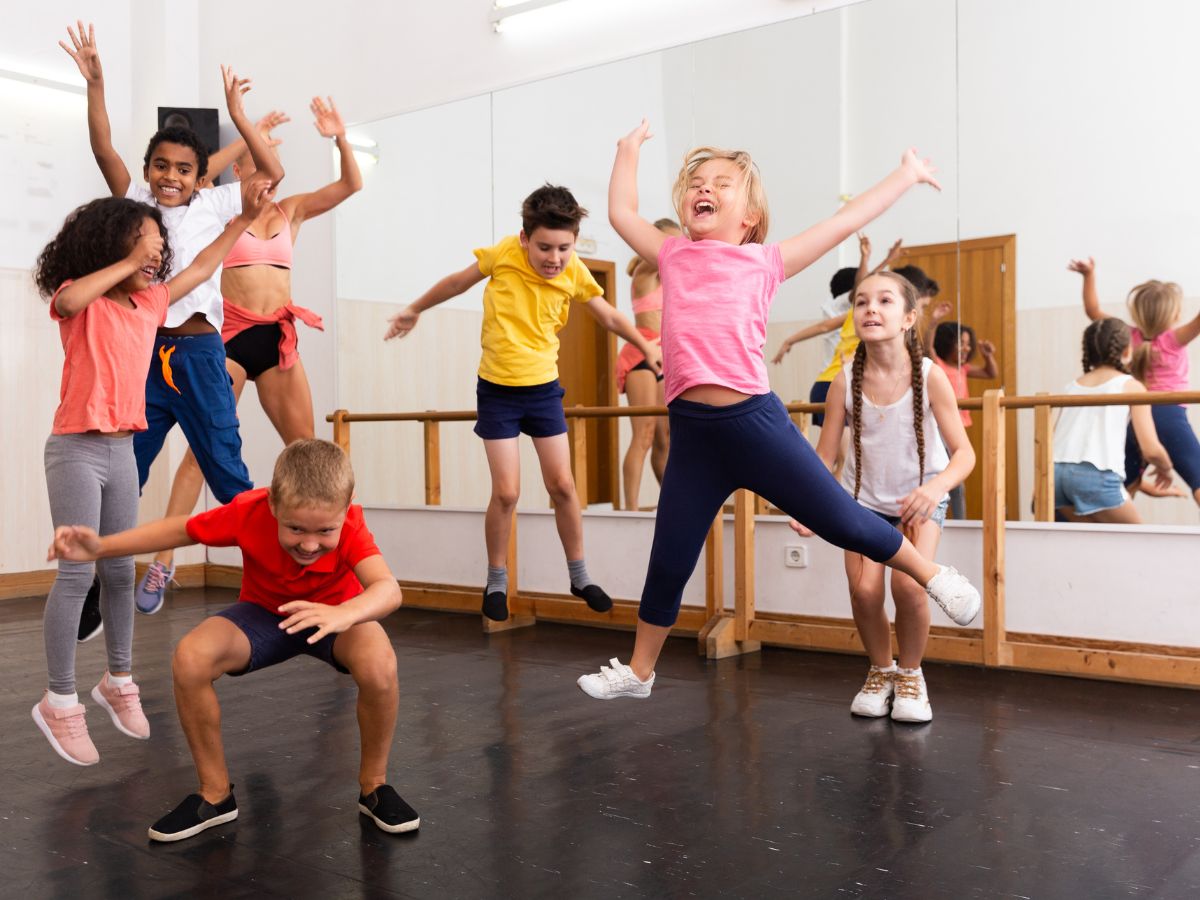Written by Chasta Hamilton
What do you say? Or am I the only one out there getting a little tired of hearing the description “Well, she’s a competition dancer” followed by an audible groan.
I mean, really. Is it a pride thing? Is it a stereotype derived from “reality” TV? Or are competition dancers really as shallow and talentless as the reputation they are given suggests?
I’ll admit – as I did here – that I never went to a competition studio while I trained. I hate to age myself, but competitions just weren’t nearly as prevalent back in the 80’s and 90’s. But, I have taught at competition studios across the country and let me tell you first hand – for the most part – competition dancers are pretty dang special. Let me count a few of the reasons why:
1. Competition dancers get to perform – lots! If we lived in a more art-appreciated world, say, where people held a draft and paid millions for a dancer’s contract – or the arch of your foot was revered like the size of your chest – just imagine – a world where a season ticket to ABT’s lineup rivaled the cost of one ticket to a Dallas Cowboys’ game… maybe THEN dancers would have performing opportunities thrown at them on the reg. Sadly, this is not our world. Dance is not funded the way it should be, and for that reason – most studios, conservatories and companies are not able to hold concerts every two weeks. Enter, competitions. Is it the perfect-case scenario to fulfill our artistic performance desires? Maybe not. But – hey – these dancers are getting regular, valuable stage time, and through that – opportunities to learn how to deal with stage-fright, how to cover mistakes on the fly, how to project and perform, and overall gaining a confident comfort with the stage. Not to mention, I have had my competition dancers teach ME how to do stage make-up. These skills can become even more valuable when competition dancers are also able to perform a solo several times a year – a privilege that comes to very few dancers outside the competition world.
2. Competition dancers learn to perform a variety of styles. Because we want to maximize our opportunities at competitions, we enter dances in many different categories. Most competition dancers I have worked with are proficient in ballet, jazz, tap, lyrical, hip hop, contemporary and more. You may argue that they are spreading themselves too thin – but quite honestly, I don’t see that being the case. Sure, most dancers have their favorite style – but they are being trained in all styles! If they go to a “jazz” audition and are asked if they have any added skills – most competition dancers can whip out their tap shoes and execute a pretty nice time-step. It brings marketability and diversity to their talent.
3. Competition dancers are scored/critiqued. I understand that this point could be seen as a negative. However, I would disagree. These dancers develop a tough skin – and have a tangible consequence for making mistakes or not working hard enough. The after-high-school dance world is rarely sunshine and rainbows. Most competition dancers have met disappointment plenty, and have learned how to cope with it. They also have a pretty nice fire under them to stay motivated. If Sally gets a high gold for her solo at NYCDA – she has the tangible goal to reach for the platinum next time. Additionally, judge’s critiques can help Sally get a new perspective on her training and how she can improve. These give a measurable value to gauge if a dancer is going in the right direction.
4. Competition dancers always get to keep an eye on what is out there. As a choreographer, competitions are one of my favorite places to be inspired. Rarely, outside of competitions, can you meet up with multiple different studios and see what is out there. It gives you an interesting perspective. You can ask yourself – is my studio giving me the best training available in my area? What does James from Stage Door‘s solo have that I could learn from? What is it aboutElite Dance that makes me feel something when they perform? Sitting through a competition, for the dancer with the right mindset, can be incredibly inspiring and educating; telling them more than what they see within the walls of their own studio.
5. Competition dancers have proven to do well after they graduate. You know what they say – the proof is in the pudding. (I honestly have no idea why they say it… but they do!) Competition dancers are EVERYWHERE!!! The most prestigious colleges and conservatories, professional companies, commercials, TV shows, movies, music videos… they are all chock-full of past-and-present competition dancers! These kids are not to be discounted – they know how to dance well, they are trained well, they audition well, they perform well. They are successful. So – pray tell – why is it we sigh “competition dancers, ugh“. Far as I can tell – they are doing pretty well, my friends.
So – that’s my beef today. If you have pooh-poohed competition dancers in the past, I hope you will pause next time you are tempted to do more poohing. (Oh, get your head out of the toilet for Pete’s sake!) ![]() If you are a competition dancer – I hope you hold your head high and defend your choice to compete. There are many benefits to what you do – and as long as you see the much deeper meaning beyond the trophy, I would say you are well on your way to greatness.
If you are a competition dancer – I hope you hold your head high and defend your choice to compete. There are many benefits to what you do – and as long as you see the much deeper meaning beyond the trophy, I would say you are well on your way to greatness.
Dance on!






